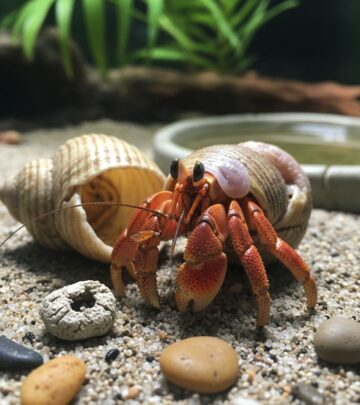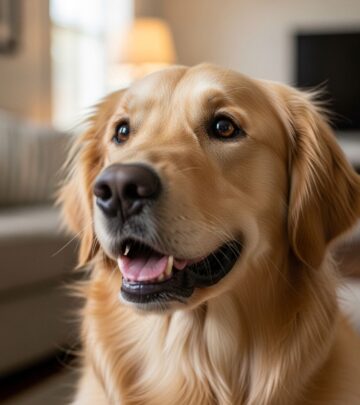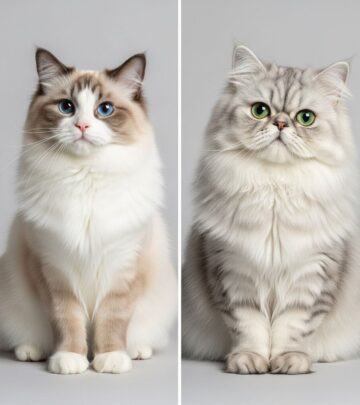Chihuahua Dog Breed Profile: The Tiny Companion with a Big Personality
Explore the unique traits, care needs, health, and rich history of the lovable and spirited Chihuahua breed.

The Chihuahua, distinguished as the world’s smallest dog breed, holds an enduring place in the hearts of dog lovers. This breed’s oversized personality, affectionate devotion, and remarkable adaptability have made it a treasured companion across generations. Despite their petite frame, Chihuahuas embody confidence, intelligence, and an impressive liveliness that far outweighs their size.
Breed Overview
| Group | Toy |
|---|---|
| Height | 6–9 inches (15–23 cm) at the shoulder |
| Weight | 2–6 pounds (1–3 kg) |
| Coat | Smooth (short-haired) or long-haired |
| Color | Wide variety: solid, marked, or splashed; any color accepted |
| Life Expectancy | 14–17 years |
| Origin | Mexico |
History and Origin
Chihuahuas trace their roots to Mexico, where small companion dogs had roles in ancient civilizations. The breed, officially known as the Chihuahua or Chihuahueño, is thought to descend from the Techichi, a companion dog favored by the Toltecs. When Spain colonized the region, crosses with small European breeds refined the Chihuahua’s distinctive appearance seen today.
The breed gained global attention in the late 19th century when American travelers brought Chihuahuas to the United States from Mexico’s Chihuahua state, which lends the breed its name. Recognition by major kennel clubs soon followed, and the Chihuahua’s popularity as a cherished pet soared.
Physical Characteristics
Size
With their tiny stature, Chihuahuas are among the world’s smallest dog breeds. Adults typically stand between 6 and 9 inches tall at the shoulder and weigh anywhere from 2 to 6 pounds. Show standards often prioritize weight and proportions over specific height measurements.
Head and Face
- Apple-Dome Skull: Most recognized Chihuahuas feature an apple-shaped skull, contributing to their characteristic round head profile.
- Ears: Large and upright, set high on the head, giving them a perpetually alert appearance.
- Eyes: Large, round, and expressive—often dark, though lighter eyes occasionally occur in lighter-colored coats.
- Molera: Many Chihuahuas retain a soft spot on the crown, similar to the fontanel in human infants. This is normal and generally not problematic.
Body and Tail
- The body is compact, slightly longer than tall in most individuals.
- The tail is moderately long, usually carried high, in a sickle shape or curled over the back.
Coat Types and Colors
- Smooth-Coated: Short, close-lying fur that requires minimal grooming.
- Long-Coated: Soft, fine hair with fringes on legs, ears, and tail, which needs regular brushing to prevent tangling.
Chihuahuas come in an extensive range of colors and patterns: solid black, fawn, chocolate, white, cream, and various combinations (e.g., black and tan, blue and white). No color or pattern is disqualified from the breed standard.
Temperament and Personality
Despite their small frame, Chihuahuas have a reputation for being sassy, spirited, and outgoing. Here’s what sets their temperament apart:
- Loyalty: Chihuahuas form deep bonds with their owners. Many “imprint” on a favorite person while remaining affectionate to other family members.
- Alertness: Always watchful, they make surprisingly good watchdogs—quick to alert you to new arrivals or noises.
- Sociability: They thrive on attention and affection, often seeking warmth and cuddles. However, they can be wary of strangers and protective of their home and people.
- Confidence: This breed typically acts much larger than its actual size, often showing remarkable bravery and assertiveness.
- Playfulness: Chihuahuas enjoy play and activity. They love to participate in games and interactive training sessions, displaying intelligence and quick learning ability.
Due to their loyalty, Chihuahuas may be reserved or defensive around unfamiliar people or animals, making early socialization essential for confidence and good manners.
Living Needs and Suitability
Chihuahuas adapt well to a variety of home environments, but their small, delicate build means certain precautions are advisable for a safe and happy life:
- Apartment Friendly: Their compact size suits apartment living or homes with limited space.
- Fragility: Chihuahuas’ tiny frames make them vulnerable to injury. They are best suited for adult households or families with older, gentle children. Young kids may accidentally play too roughly.
- Family Companionship: Chihuahuas love being close to their people. They are happiest when involved in family life and can become anxious if left alone for extended periods.
- Supervision: Never leave Chihuahuas unattended with large dogs. They risk injury due to their bold attitude and petite size.
Care and Grooming
Exercise
Chihuahuas are energetic despite their size. Their exercise needs are modest but important for both physical and mental health:
- Short daily walks and indoor playtime are usually sufficient.
- They enjoy interactive toys, puzzles, and brief agility courses.
- Be careful to avoid excessive exercise, especially for puppies and older dogs, due to their small size.
Grooming
- Smooth-Coated: Requires only occasional brushing and infrequent bathing.
- Long-Coated: Needs brushing several times per week to prevent matting and tangles. Pay special attention to the feathering on ears, legs, and tail.
- Routine care includes nail trimming, dental hygiene, and ear cleaning.
Feeding
- Feed a high-quality diet formatted for small breeds, following your veterinarian’s recommendations.
- Monitor their weight, as Chihuahuas are prone to obesity if overfed or not exercised regularly.
Training and Socialization
- Intelligence: Chihuahuas are smart and quick to learn basic commands and even advanced tricks when rewarded with treats and positive reinforcement.
- Willfulness: This breed can be headstrong and stubborn at times. Start training early, be consistent, and avoid harsh methods.
- House Training: Can require patience; crate training often helps.
- Socialization: Early exposure to a variety of people, pets, sights, and sounds helps prevent nervousness or aggression later in life. Enroll in puppy classes if possible.
Common Health Issues
Chihuahuas have a reputation for longevity, with many living well into their teens. However, like all breeds, they are predisposed to certain health conditions:
- Patellar Luxation: A condition where the kneecap dislocates, causing temporary lameness or hopping gait.
- Collapsing Trachea: Causes coughing, wheezing, or difficulty breathing.
- Dental Problems: Small mouths are prone to overcrowding and dental disease. Brush teeth regularly and see your vet for cleanings.
- Heart Disease: Monitor for signs like coughing or lethargy in older dogs.
- Hypoglycemia: A risk, especially in puppies, due to their fast metabolism and low body mass. Signs include lethargy, trembling, or seizures.
- Hydrocephalus: Rare, but involves abnormal fluid within the brain.
- Monitor the soft spot (molera), but note it rarely causes lifelong issues.
Work with reputable breeders who do health screening; schedule regular veterinary check-ups for preventive care.
Choosing a Chihuahua
- Adoption: Consider adopting Chihuahuas from shelters or rescue organizations; many wonderful dogs need homes.
- Responsible Breeders: If buying a puppy, select breeders who health test their breeding stock for genetic disorders, socialize puppies well, and prioritize temperament and welfare.
When meeting puppies or adults, observe energy levels, sociability, and body condition. Ensure the environment is clean and the animals are alert and friendly.
Fun Facts about Chihuahuas
- Named after the Mexican state of Chihuahua, where they were first discovered by outsiders.
- The world’s oldest known Chihuahua lived to be 20 years old.
- Famous for their presence in pop culture, including movies, television commercials, and as fashionable pets of celebrities.
- The breed is sometimes referred to as “the purse dog” due to their love of being carried close to their owners.
Pros and Cons of Living with a Chihuahua
| Pros | Cons |
|---|---|
|
|
Frequently Asked Questions (FAQs)
Q: Are Chihuahuas good with children?
A: Chihuahuas can be good with older, respectful children but are too fragile for toddlers or rough play. Always supervise interactions and teach children how to gently handle small dogs.
Q: How much exercise does a Chihuahua need?
A: Chihuahuas enjoy daily walks and play sessions but require less exercise than larger, high-energy breeds. Mental stimulation is just as important as physical activity for this smart breed.
Q: Do Chihuahuas bark a lot?
A: They can be prone to barking, especially if bored or not socialized properly. Early training helps manage and reduce excessive barking.
Q: What is the average life span of a Chihuahua?
A: Chihuahuas are one of the longest-living breeds, often reaching 14–17 years with good care. Some even exceed this, living to 18 or 20 years.
Q: Do Chihuahuas require much grooming?
A: Smooth-coated Chihuahuas need little grooming—occasional brushing and baths. Long-coated varieties benefit from regular brushing to keep their coats tangle-free and healthy.
Q: Are Chihuahuas difficult to train?
A: With patience, consistency, and positive reinforcement, Chihuahuas can be highly trainable. Early socialization and gentle, reward-based training are key to success.
Read full bio of medha deb












